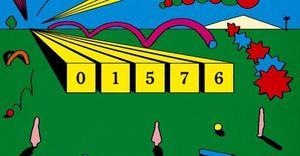Parents across the United Kingdom are being urged to immediately stop giving their children a popular dietary supplement after authorities discovered that it contains an undeclared prescription-only medicine. The warning, issued on August 19, 2025, by the Medicines and Healthcare products Regulatory Agency (MHRA), centers on Nutrition Ignition Kids Magnesium Glycinate Gummies—a product widely marketed online as a food supplement promising to reduce tiredness and boost the immune system.
What sparked this urgent call to action? According to both the BBC and official MHRA statements, routine testing of two batches of the gummies revealed that each one contained between 1.5 and 1.7 milligrams of melatonin. That’s a prescription-only hormone in the UK, typically used to treat sleep disorders in adults and children over six years old. The kicker: melatonin wasn’t listed anywhere on the product’s packaging. Instead, the label simply advised a daily dose of one or two gummies, depending on the child’s age.
Melatonin is a hormone naturally produced by the human body to regulate the sleep-wake cycle. While it’s often hailed as a gentle aid for those struggling to fall asleep, in the UK, synthetic melatonin is tightly controlled. It’s only available by prescription for specific sleep disorders, and the recommended starting dose for children is just 1 milligram. The discovery that these gummies contained more than that per serving—and were being sold without any mention of melatonin—sent shockwaves through both the medical community and concerned parents.
"We advise any parent or caregiver to stop use of this product and safely dispose of it," said Dr Alison Cave, the MHRA’s chief safety officer. Her advice was clear and unequivocal: don’t take chances with your child’s health, and if you have these gummies at home, don’t leave them lying around. In fact, the MHRA recommended storing any remaining product securely in a tamper-proof container out of children’s reach until it can be taken to a pharmacy for safe disposal. The agency is also working with online retailers to remove all listings of Nutrition Ignition Kids Magnesium Glycinate Gummies from sale, in hopes of stemming the tide of potentially dangerous exposures.
Parents might be wondering: what’s the risk if their child has already eaten these gummies? The answer isn’t entirely straightforward. While melatonin is generally considered safe when used as prescribed, taking too much can lead to a host of unpleasant side effects. The MHRA lists headaches, drowsiness, dizziness, and nausea as some of the most common problems. For children, the risks can be especially concerning. Studies cited by the BBC have noted side effects such as headache, hyperactivity, dizziness, and abdominal pain in children prescribed melatonin for legitimate medical reasons. Thankfully, no serious side effects were observed in these studies, but the agency still urges caution.
Dr Cave emphasized the importance of vigilance: "Anyone who suspects that their child, or a child in their care, is having a side effect from this product is advised to stop taking it and speak to a healthcare professional and report it directly to the MHRA Yellow Card scheme." The Yellow Card scheme is the UK’s official system for collecting information on suspected adverse reactions to medicines and medical devices, and it plays a crucial role in monitoring public health and safety.
The story has raised broader questions about the regulation of dietary supplements sold online. Nutrition Ignition Kids Magnesium Glycinate Gummies were marketed as a food supplement, not a medicine. This distinction matters—a lot. Food supplements in the UK are not subject to the same rigorous testing and oversight as prescription drugs. That means ingredients can sometimes slip through the cracks, especially when products are imported or sold through third-party online platforms. The presence of an undeclared prescription medicine in a product aimed at children is a stark reminder of the potential pitfalls of the supplement market.
Magnesium glycinate, the main ingredient promoted on the packaging, is itself a popular supplement. It’s often used to help with anxiety and improve sleep, and it’s generally considered safe when used appropriately. But the addition of melatonin—without any mention on the label—changes the risk profile entirely. Parents who thought they were giving their children a simple magnesium supplement were, in fact, administering a hormone that should only be given under medical supervision.
The MHRA’s swift action to remove the product from sale highlights the agency’s commitment to public safety. Still, the incident has sparked frustration among parents and health advocates who argue that more needs to be done to regulate online supplement sales. The ease with which products can be listed and purchased from internet retailers creates opportunities for mistakes, oversights, or even deliberate mislabeling. For families, the consequences can be deeply personal—and sometimes frightening.
For now, the official guidance is clear: if you have Nutrition Ignition Kids Magnesium Glycinate Gummies at home, stop using them immediately. Store them safely out of reach, and take them to any pharmacy for disposal. If your child experiences any symptoms such as headache, drowsiness, dizziness, or nausea after consuming the gummies, seek medical advice and report the incident through the MHRA Yellow Card scheme.
The episode serves as a cautionary tale for anyone who buys supplements online, especially for children. It’s a reminder that even well-intentioned products can harbor hidden dangers, and that careful scrutiny is essential. As Dr Cave put it, "We advise any parent or caregiver to stop use of this product and safely dispose of it." For many families, that’s advice worth heeding—no question about it.
As the MHRA continues its investigation and works to tighten oversight of online supplement sales, parents are left to grapple with the unsettling reality that not everything on store shelves—or in virtual shopping carts—is what it seems. For now, caution, vigilance, and a healthy dose of skepticism may be the best medicine of all.



